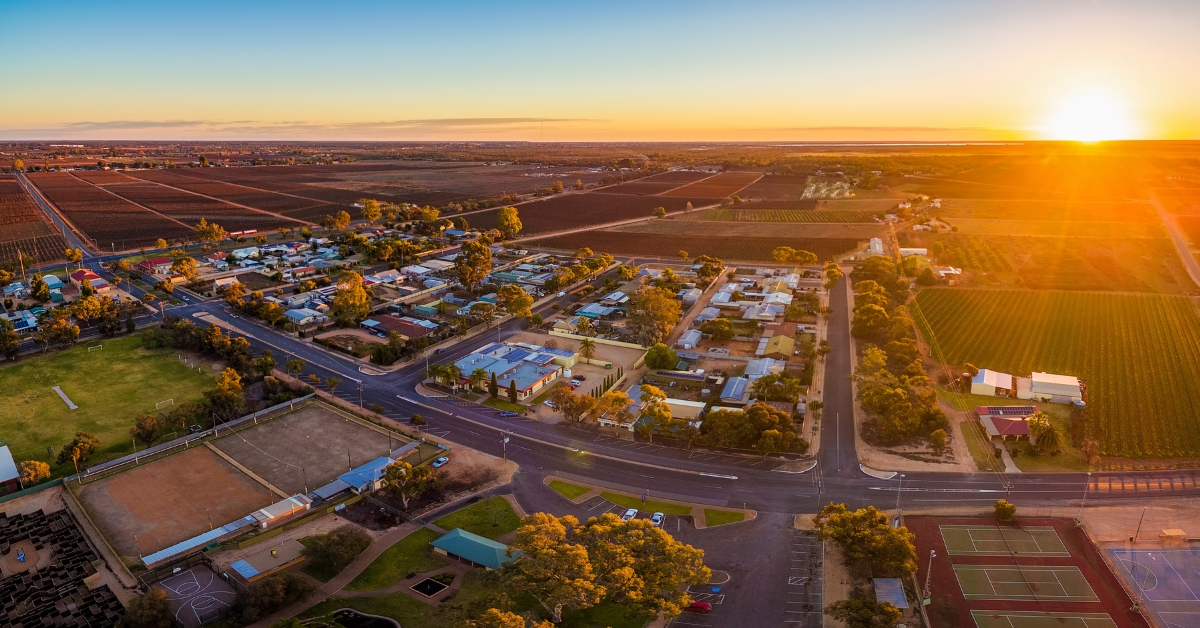Where to Buy: Country or City?

There’s no two ways about it, buying a house is a big decision. You can spend months compiling a list of all the things a potential home must have - the process really is that absorbing. Once you’ve locked down the features of the perfect house, then it’s time to think about location. At the end of the day, location can make or break a house. Location isn’t just what street the property is on, but also what suburb, in what part of the country.
When it comes to property location there is no one size fits all. So before deciding on a house, there are some considerations to make note of. Firstly there is the idea of money, how much would a like for like property cost in a country or city setting. Secondly, is the house a reasonable distance away from schools, work and the shops. Finally, consider what it is you want from the property. Once the goals of the investment are determined, you can go along way towards deciding if you would like to buy in the city or country.
Where Should You Buy?
Deciding whether to buy in a city or in the country might sound simple, but it’s not as straightforward as it may appear. Finding the right location can be a daunting prospect, and not just for first time investors.
One way to sort through the noise is to define the broader parameters for where you think you might like to invest. Choosing between a regional and metropolitan property strategy is one way to narrow your search. Deciding between the two is an individual decision which will be based on the goals of your property investment strategy and the level of risk with which you are comfortable. However, deciding between the two will be all about the research.
People who have never lived in the country before can encounter pitfalls they never knew a property could have if they are not well prepared. If you’re considering a rural property, do your research. This is because there are risks to purchasing rural properties that simply don’t concern suburban or inner-city property buyers.
Some of these risks include:
- Chemical contamination of land and or of water
- Presence of livestock diseases in the area
- Instances of plant and pests diseases
- Land usage rights that affect what you can use your property for
- Land rights that determine what outside parties can do to and on your property
- Legal requirements to control noxious weeds, animals and insects
When looking at a rural property, asks questions. There may be some instances where a vendor is not legally obligated to disclose the aforementioned things about a property. So to combat this, be prepared to ask questions. If you are aware of any issues before you buy, you have all the information needed to make the best decision possible about buying a rural property.
It should be noted that investors of rural properties can reap huge rewards. House and land prices often cost much less for a lot more property than what house hunters in the city region would pay. Of course there is also the added bonus of enjoying life in the great outdoors when you buy in the country.
A Numbers Game
With 68.4 per cent of Australia’s population living in cities, investing in a metro area can be an easier bet. In capital cities, there are always a lot of people and therefore you will usually see a steady flow of tenants. The city’s more extensive employment opportunities are directly responsible for the greater demand for property in metropolitan areas. The more diverse the economy, the lower the investment risk.
However, city properties do have a pitfall- the fact that they are so expensive. The median house price in Sydney sits at $945,000. For example, an investor could buy a property in Lidcombe for exactly that amount. The property is unrenovated and features 2 bedrooms and 1 bathroom and is 16kms from the CBD.
In comparison, $950,000 can buy you a six bedroom, three bathroom property in Rosetta, Hobert. Located 12kms from the city’s centre, this property boasts panoramic views over the River Derwent.
At the end of the day, the fact remains that city properties are much more expensive than rural properties. So the decision between the two locations comes down to many factors. Firstly, what lifestyle do you want your property to allow for. Secondly, would you rather a bigger property in a rural location for less money, or a smaller property in a city location for a lot more money.
Knowing how far your money will get you in both city and rural locations is the first step to coming to terms with where you want to buy.
The Broad Differences
Buying in either a rural or city area is going to provide buyers with two distinct lifestyles. Rural property owners will notice how peaceful and slow paced life can be. There really will be time to stop and take in the vast surroundings of mother nature. Whereas city livers will notice that everything moves in a fast pace, there will always be some café to try, a show to see or a place to shop in.
Where you buy will determine the lifestyle you will have. In the city there will always be the noise of others. Be it sirens, the sound of traffic or just people living their lives. In a rural town, buyers will find that the majority of sounds come from the landscape, which in turn leads to a more peaceful feeling.
In the city of course there will be lots of access to just about anything one could think of. Entertainment venues, food stores and activities. While in the country residents may find themselves spending a lot of time in the car in order to access shopping precincts.
There is no one size fits all answer to the country versus city debate and your selection will depend on many different variables.
DISCLAIMER - The information provided is for guidance and informational purposes only and does not replace independent business, legal and financial advice which we strongly recommend. Whilst the information is considered true and correct at the date of publication, changes in circumstances after the time of publication may impact the accuracy of the information provided. LJ Hooker will not accept responsibility or liability for any reliance on the blog information, including but not limited to, the accuracy, currency or completeness of any information or links.
Share


.jpg)